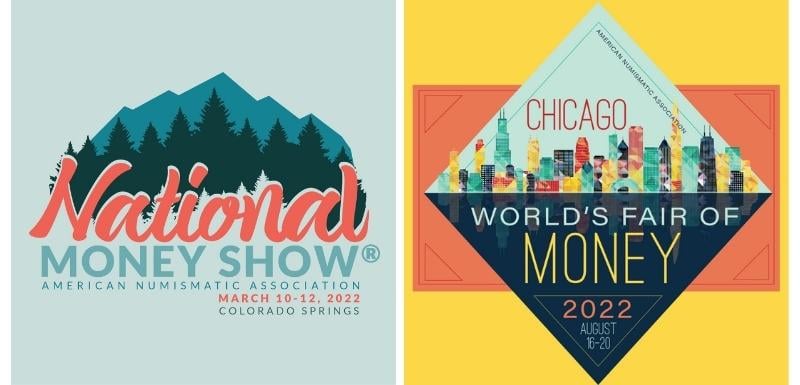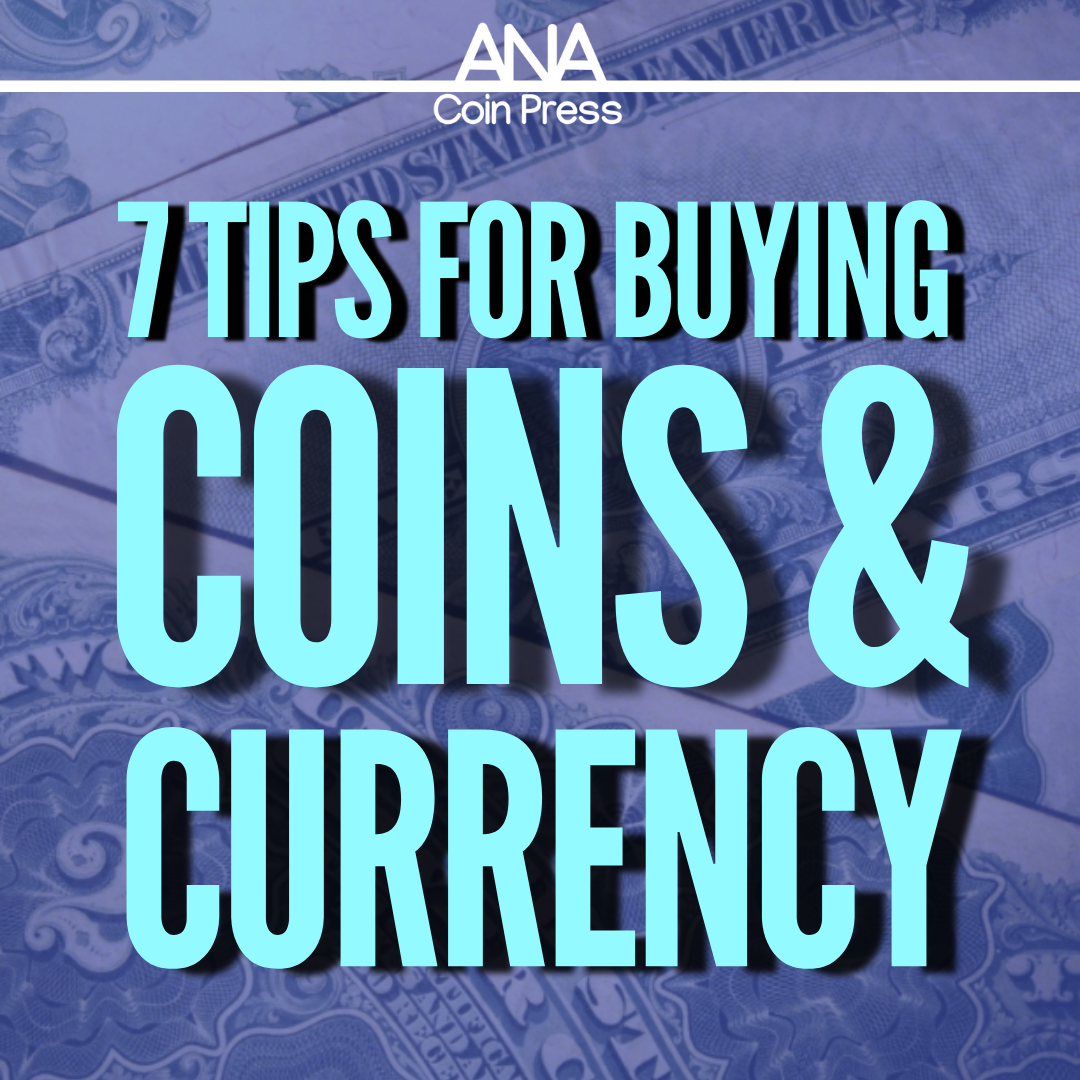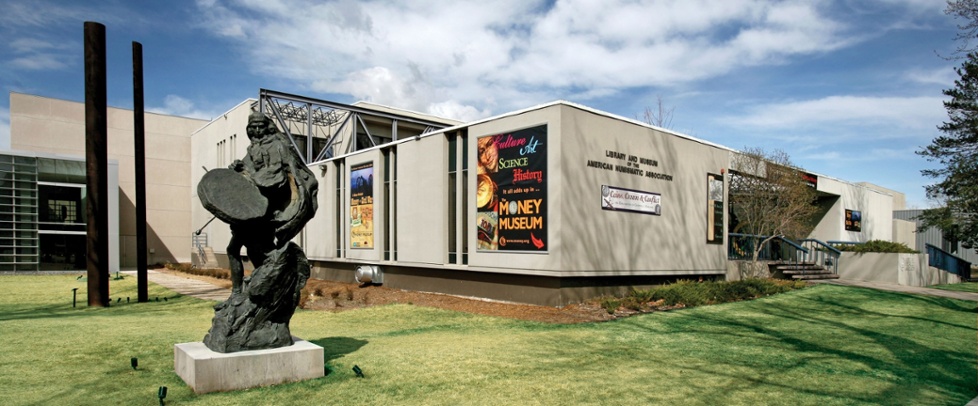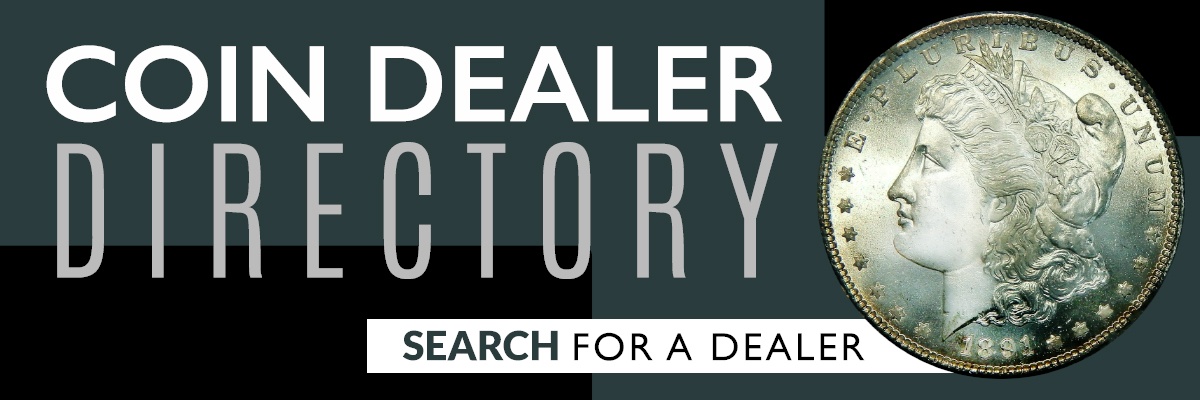Seven Tips for Buying Coins and Currency
Coin collecting is popular for many reasons: they are fascinating pieces of history that can be held in one's hand; real-life treasures to be sought after and found; tokens of memories and good times past; potential financial investments and more.
Unfortunately, there are occasional pitfalls, simple mistakes and scams collectors might fall prey to. To avoid making an error and potentially costing yourself a lot of money, it’s important to be an informed consumer. Read on to explore seven basic tips for purchasing coins to build your collection.
1. Know what you're buying and what it's worth.
.jpg?width=300&name=red%20book%20(4).jpg) Before buying anything, you need to be familiar with the coin that you're interested in purchasing. Find and study as many different examples as you can, and examine how they’re graded. You want to be able to distinguish if a coin has been cleaned or has any inconsistencies to indicate it may be counterfeit. In addition, it's always wise to consult a reference book – there are general references, like the Red Book, as well as specialized books on most series. As the saying goes, “Buy the book before the coin.”
Before buying anything, you need to be familiar with the coin that you're interested in purchasing. Find and study as many different examples as you can, and examine how they’re graded. You want to be able to distinguish if a coin has been cleaned or has any inconsistencies to indicate it may be counterfeit. In addition, it's always wise to consult a reference book – there are general references, like the Red Book, as well as specialized books on most series. As the saying goes, “Buy the book before the coin.”
It's also important to understand the value of your potential purchase to avoid spending more than a coin is worth. Familiarize yourself with recent auction prices and decide what you believe it’s worth in the current conditions. You may very well be willing to pay a little above the market value for the perfect coin, but it’s important to realize you may have trouble reselling it at a profit if you do so.
2. Know the varieties.
In a lot of cases, common dates of a coin will have rare varieties that aren’t as well-known. Even if you aren’t looking for one of these varieties, familiarize yourself with them and learn how to identify them.
For example, an 1858/7 flying eagle looks like a standard 1858 if you don’t know what you’re looking for, but is worth around four times as much, depending on the grade. If you find one unattributed, you can snag a great deal, or even resell it with attribution for a tidy profit.
3. Visit your local coin shop.
Coin shops are more prevalent than one might initially suspect. And if you live in a reasonably large city, there will likely be a few coin shops to pick from. Make an effort to visit each of them to see which businesses carry the kinds of coins you’re looking for. Shopping local can be a great way to find some good deals that may not be available online, and it will give you the opportunity to form valuable and rewarding relationships with dealers. Once they know you and what you’re collecting, they can help keep an eye out for pieces you may want. Get a head start by finding local dealers in your area with the ANA's Coin Dealer Directory.
4. Attend coin shows.
There are coin shows of all different sizes across the country, ranging from small local shows to national conventions with hundreds of dealers.
Attending a local show can be a great way to get your feet wet and provides an opportunity to connect with fellow collectors in your area.
And large shows, like the ANA's National Money Show® and World’s Fair of Money®, allow attendees to engage with the collecting community on a number of additional levels, providing opportunities to meet legends of the hobby; participate in live auctions, lectures and seminars; view multi-million dollar rare coin exhibits; and more. One can spend a few days completely immersed in numismatics while enjoying access to hundreds of dealers and thousands of collectors.

5. Participate in an auction.
There are multiple large and highly credible numismatic auction houses that offer purchasing options that might remove some of the guesswork from coin-buying. When buying from a reputable and well-established auction company, you can be relatively sure that the coins you’re buying are genuine and original. Almost all major U.S. auction houses will have U.S. coins graded by NGC® or PCGS® prior to auction, giving you an added guarantee of authenticity.
6. Shop eBay.
eBay has a virtual smorgasbord of coins for sale. If the piece you’re looking for is worth less than $1,000 or so, there's a decent chance it could be found there. The rarest coins tend to make their way to major auction houses, but common dates are abundant on eBay. One should, however, exercise caution when buying on eBay. While many sellers are forthcoming and legitimate, there are potential risks in regard to counterfeits, mislabeled auctions, and coins with unmentioned problems like a cleaning. This is where knowing your stuff is incredibly important. [Visit the ANA Money Museum's eBay Auction page here.]
7. Explore social media.
Never doubt the power of the internet. Thousands of coins have been sold over social media platforms like Facebook, Instagram, and Reddit. As always, you’ll want to keep an eye out for potential scams or unreliable sellers, but there are plenty of reputable vest pocket dealers that use these platforms. And, social media also gives you the chance to form relationships with dealers across the country.
We hope these tips help answer some questions and inform readers on a few of the different places that coins and currency can be found. To learn more about consumer protection, visit the Consumer Awareness Resources page at money.org.
Thanks for reading, and as always, Happy Collecting!
About the American Numismatic Association
The American Numismatic Association (ANA) is a nonprofit organization dedicated to educating and encouraging people to study and collect coins and related items.
The ANA helps the collecting community and general public discover and explore the world of money through its vast array of educational programs including its museum, library, publications, conventions and numismatic seminars and webinars.



